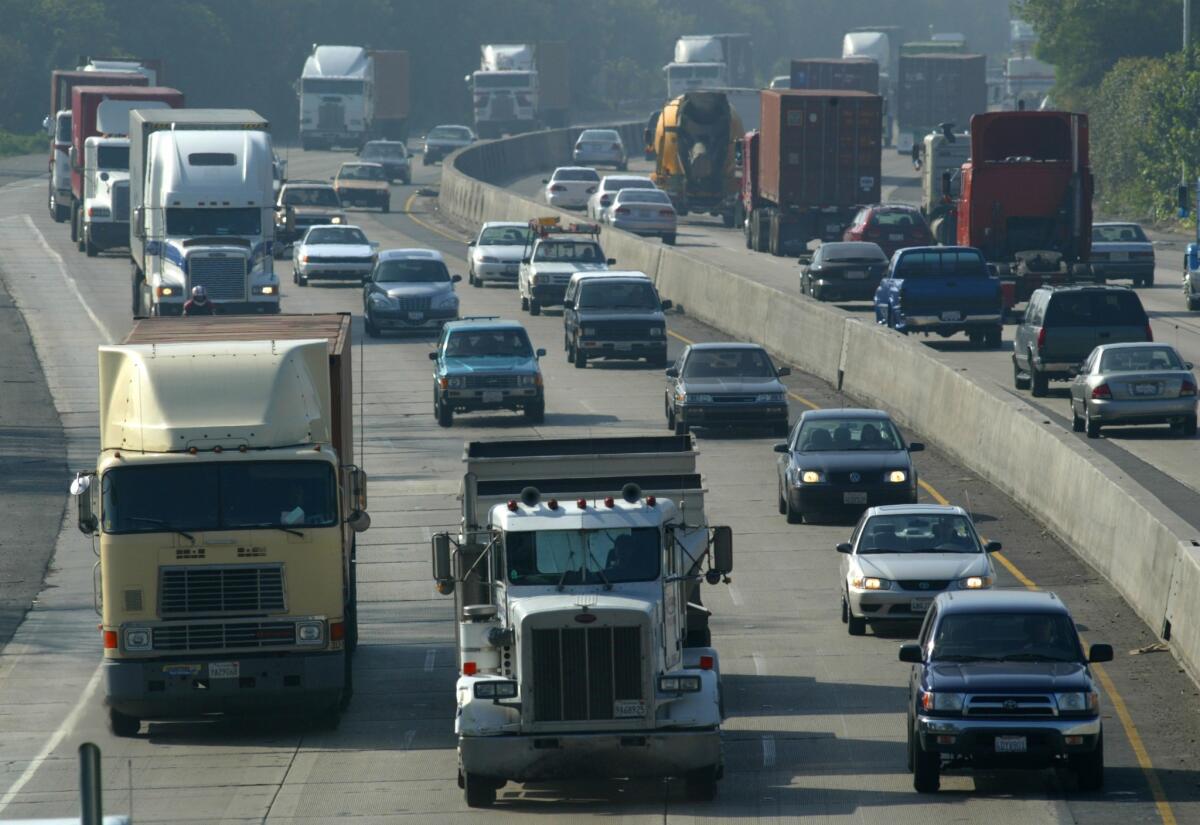Trucker strike at ports of L.A. and Long Beach ends

- Share via
Striking truck drivers from two companies agreed Friday to return to work, organizers said, ending a nine-day trucker protest at the ports of Los Angeles and Long Beach.
The two struck companies -- Pacer International Inc. and Harbor Rail Transport -- said in statements that they would not retaliate against drivers who walked off the job and vowed to continue discussions with the Teamsters Union, which is backing the drivers.
A series of driver strikes began at the ports Nov. 13, and drivers from seven firms protested at various times during the job action, organizers said.
The drivers say they are improperly classified as independent contractors, leaving them with fewer workplace protections and lower pay than if they were company employees.
A spokesman for XPO Logistics, which owns Pacer and Harbor Rail, declined to comment beyond the companies’ statements.
Drivers from the other five firms ended their strikes before Friday, following progress in negotiations between the Teamsters and the targeted companies, according to protest organizers.
Throughout the last week, drivers set up picket lines at marine terminals and rail yards as company trucks entered, then took their lines down when the vehicles left the locations, organizers said.
The picket lines raised tensions at the nation’s busiest port complex because dockworkers have been without a contract since July.
In the last two weeks, management and the dockworkers union have traded public barbs during negotiations for a new West Coast contract, raising fears of a work stoppage at the ports.
However, dockworkers did not walk off the job during the trucker strike and protest organizers said most terminals turned away trucks from the targeted companies.
Cargo continued to flow and all terminals remained open, port officials said.
Follow me on Twitter: @khouriandrew
More to Read
Inside the business of entertainment
The Wide Shot brings you news, analysis and insights on everything from streaming wars to production — and what it all means for the future.
You may occasionally receive promotional content from the Los Angeles Times.











